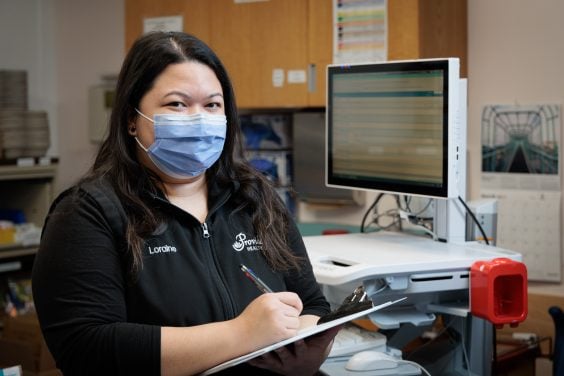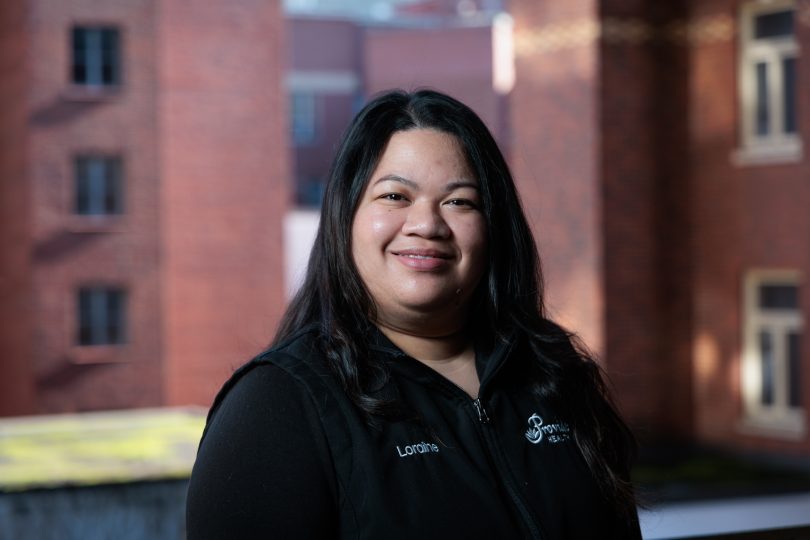We’re launching a series of staff profiles to highlight the important role of nurses who work in substance use care. First up, meet Loraine Belleza, a Licenced Practical Nurse at the St. Paul’s Hospital Overdose Prevention Site.
When the Overdose Prevention Site opened inside St. Paul’s Hospital two years ago, Loraine Belleza saw an opportunity to grow professionally and expand her knowledge.
At the time, she was just starting her career as a Licenced Practical Nurse and the new OPS aligned perfectly with her desire to help people and contribute to society.
“I gave it a try and, sure enough, it’s been a very fulfilling job for me,” she says. “I’ve been able to care for some of the most vulnerable patients and connect with them on a whole different level.”
A non-judgmental approach
Located inside St. Paul’s Hospital, the OPS is a safe, hygienic, nurse-supervised space where hospital patients can use their own drugs.
“Patients accessing the clinic can also pick up harm-reduction supplies, and they can get their drugs tested for fentanyl or benzodiazepines,” Belleza says. “OPS nurses also provide education around safe IV line use and we offer take-home naloxone training and kits for patients and staff.”
The in-hospital OPS is part of the range of harm-reduction services at Providence. It neither condones nor condemns substance use, but recognizes the reality of the toxic-drug situation in BC and works to minimize its human cost. In its first two years of operation, the OPS saw close to 3,625 visits. Of those visits, there were 167 overdoses – all successfully reversed. No one has been admitted to a higher level of care and no one has died.
The site is staffed by nurses and peer support navigators who take a non-judgmental approach to substance use to reduce its harms. That’s imperative because “stigma is really a big barrier to patients when it comes to getting the proper care they need,” Belleza says.

Specialized training opportunities
Belleza graduated from a Practical Nursing program and holds a license with the BC College of Nurses and Midwives. She had one year of experience working on surgical/medical units before she joined the OPS. Since that time, she’s had the opportunity to bolster her education with specialized training, including: intravenous line care, overdose management, naloxone administration, trauma-informed care, autonomy in nursing, emergency resuscitator bag use, and workplace violence prevention.
Her job is fast-paced and can be unpredictable at times. To excel in this line of work, she says it’s helpful to be compassionate, empathetic, genuine and dedicated.
“With this stigmatized population, it’s important to build good connections and strong rapport with patients in order to deliver proper care,” she says, adding that being a good team player is also key.
Being a substance-use nurse has emphasized to her the importance of work-life balance and self-care. After a busy day at the hospital, she likes to unwind by doing the things she loves: getting outside, exploring new places, spending time with family and friends, and enjoying the simpler things in life – “alone time, eating good food, watching movies at home, and catching up on much-needed sleep.”





